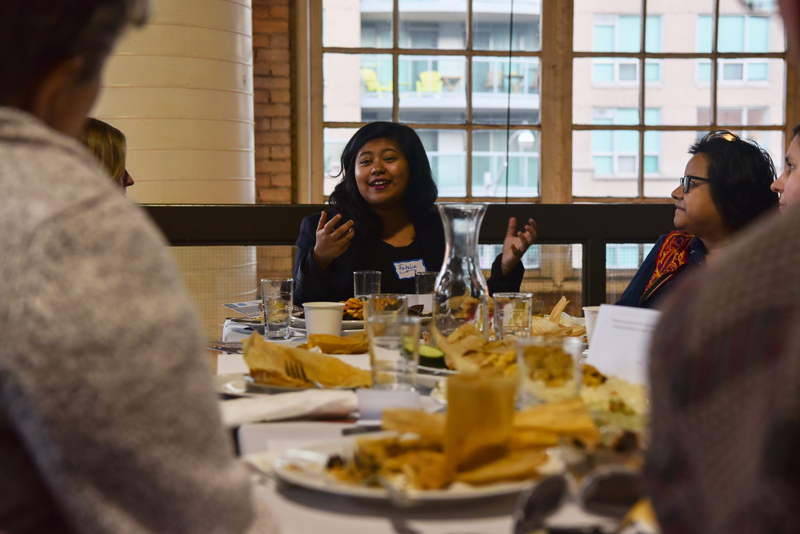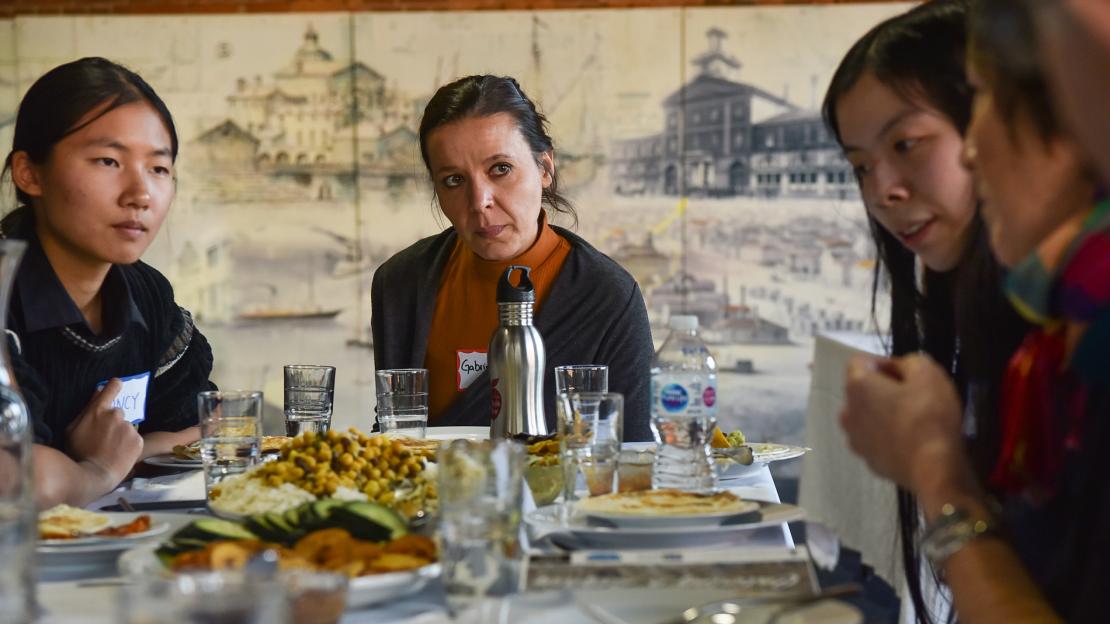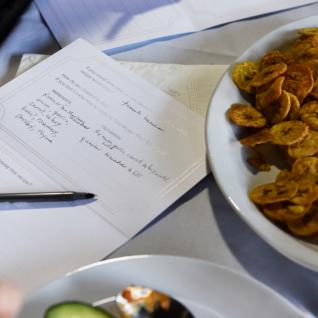A unique initiative supported by U of T Scarborough students is helping shed a light on a little understood, and largely invisible, part of the city’s foodscape; community-based caterers.
“Kitchens are forms of culinary and geographic infrastructure,” says Fateha Hossain, a fifth-year international development studies student. “We want to highlight the caterers that work so hard and put so much labour into every single dish.”
Hosted by the Culinaria Research Centre, Catering a Legacy highlighted the stories of community-based caterers by focusing on the recipes they preserve that are so important to Toronto’s many different communities.
In collaboration with CaterToronto and the Toronto Ward Museum, the event, which took place in the East Mezzanine of Toronto’s St. Lawrence Market, explored themes of gender, labour and accessibility.
CaterToronto is a social enterprise that works with community-based caterers, most of whom are women and newcomers to Canada. They help these caterers to find work and develop a network in the food industry.
Throughout the fall semester, Daniel Bender, professor in the Department of Historical and Cultural Studies, encouraged his students in his culinary ethnography course to explore the Toronto food system “from its grassroots.” The event was the course’s final project.
“They dragged themselves across the city to get to know the caterers, cook with caterers and sell with them,” says Bender.

Each caterer shared dishes at the event, and spoke about the stories behind the history of their business and a key ingredient in their dishes.
Gabriela Ituarte, owner of Maizal Quesadilla Café, seeks to showcase the diversity of corn and the link between agricultural aspects of food and people.
“These are dishes that speak for my culture, family and own experiences,” says Ituarte, who came to Canada 10 years ago from Mexico and joined CaterToronto more than a year ago.
While working at events, predominately alongside male chefs, the question of how women can share their story and gain opportunity was often something that crossed her mind.
“Being a woman, you are a part of a change,” she says. “I love working with women, I’ll always try to support them and most of us are women in my kitchen.”
"These are dishes that speak for my culture, family and own experiences," says Ituarte.
Ituarte brought savoury and sweet tamales (a labour-intensive dish of corn dough steamed in corn husk), guacamole with handmade tortillas and caramel cookies to the event.
“I feel that profit comes second when you come from a community-based business,” Ituarte says. “It has to do with the way you want to share your food and culture, and who you are.”
Audience members were given blank recipe cards and encouraged to share and think about “legacy foods,” dishes and ingredients that hold personal, cultural and ethical value.
These recipes supported group discussions with caterers and guests throughout the event.
“We rely on caterers to make these super laborious legacy foods, ones that we don’t have time to make,” Hossain says. “In that way, they are creating legacies within our communities in terms of preserving and connecting us with our culinary legacies as communities living in Toronto.”



